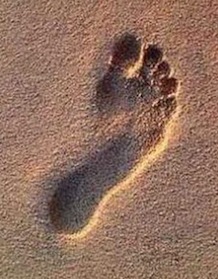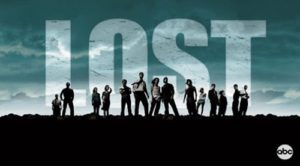Just over four years ago, a friend of mine at work gave me a little magenta coupon for a bookstore that a friend of his was starting up. Although I had a backlog of books to read and wasn’t very interested, he practically pleaded with me to visit the bookstore, and help his friend out, if possible. Since I strongly believe in supporting independent booksellers, and I’ve never met a bookstore I didn’t like, I gladly accepted it and decided to check it out after work.
 But getting there wasn’t easy; its only sign wasn’t readily visible from the road and it was in a run-down neighborhood. The building might have been a laundromat in its previous life, but whatever it had been, it still wasn’t attractive. I walked in, and was greeted by a very friendly blond-haired guy with an ear-to-ear Baptist smile and the most desperately helpful attitude outside of Ned Flanders’ yard.
But getting there wasn’t easy; its only sign wasn’t readily visible from the road and it was in a run-down neighborhood. The building might have been a laundromat in its previous life, but whatever it had been, it still wasn’t attractive. I walked in, and was greeted by a very friendly blond-haired guy with an ear-to-ear Baptist smile and the most desperately helpful attitude outside of Ned Flanders’ yard.
I explained I was just looking, and he let me browse, begging me to let him know the instant I needed anything. I don’t know how long he had been in business, but I had the impression I was one of only a very few customers to walk in that day, and maybe the first. Browsing was disappointing. There weren’t very many books, maybe just a few hundred titles in the entire store. And at least half were in Spanish! (Anything you don’t see we can order for you, the owner had assured me.)
None of the English titles appealed to me; they were all overstocks of unpopular titles. I browsed the Spanish titles (I couldn’t read any Spanish, but I recognized the name of a familiar author. There were several titles by Paulo Coelho, the author of one of my favorite books, The Alchemist as well as others such as The Fifth Mountain, By the River Piedra I Sat Down and Wept. I found myself looking for a copy of The Alchemist in Spanish. I couldn’t read Spanish, but hey, how hard could it be? I had grown up on the Mexican border, taken some compulsory Spanish in school, and could recognize lots of cognate words. (I had never had any trouble understanding “Se Prohibido Fumar” on signs!)
I thought if I bought it, I might be able to learn Spanish from it, and who knows? Barcelona had intrigued me ever since the ’92 Olympics—maybe someday I’d visit it. Maybe I’d even learn Catalan. Who knows, maybe I’d even pick up my long-forgotten, never-spoken Esperanto? Probably not, though. Mainly I just wanted to buy something, because I couldn’t stand the prospect of walking out empty-handed of this guy’s store even though his business was obviously hopeless. I announced I was looking for The Alchemist in Spanish, and there was a little problem; that was the only Coelho title that he didn’t have in stock. (Apparently even El alquimista was too popular to make the overstock collection he had purchased.)
Finally, after several weeks, my special order of El alquimista came in. I found out that night that there’s a big difference between being able to read a No Smoking sign and a single prosy paragraph of a novel in a foreign language! But I was stimulated now. In my high school and college years, I had studied German and Russian, and on my own I had studied some Esperanto and Biblical Greek and Hebrew. Of course, I hadn’t learned much of any of those, and what little I had learned was unused and long-forgotten. But maybe I could actually accomplish what I and the majority of my countrymen fail to accomplish: learn another language to the degree of actually being able to use it.
I commenced teaching myself Spanish with simple grammars, audiobooks, and podcasts. After about eight months, I was very frustrated, and felt I needed to learn a simpler language first, and return to Spanish after I had successfully trained myself to learn a language. I decided to concentrate on Esperanto for a while. I found I really enjoyed Esperanto, and launched a very small Esperanto club with the help of a friend. Esperanto was designed to be exceptionally easy, and within six months, I found I was fairly conversational, and made plans to go to an international Esperanto congress in Montréal, Québec.
But I knew Esperanto would be enough only as long as I hung with just the Esperantists; the main language of Montréal was French; so surely I should study some French, too! That I did, visiting Alliance Française meetups, while I continuing to focus on Esperanto. I had four wonderful days in Montréal where I used Esperanto and French almost exclusively.
Back from the conference I continued to study Esperanto and also Spanish as well. I was determined to visit Barcelona sometime. Esperanto fell into place as my second language without much further active study as such. Practicing with friends at the Esperanto club, listening to Esperanto podcasts, writing my journal in Esperanto, and reading in it occasionally made it almost effortless. And over the next two years, I went to national Esperanto congresses in St. Louis, Missouri, and Washington, D.C., where I made friends from all over the country.
Spanish was much more difficult for me—the irregular verbs seemed almost impossible—but I persisted and made it beyond the beginning barrier into an intermediate zone through study, reading books and websites, watching Spanish-language movies, and practicing the language at meetups. (I also studied what little Catalan I could.)
 This summer, I realized my dream of visiting Spain and spent a wonderful two weeks in Barcelona and Palma de Mallorca. Naturally, I did a lot of sightseeing, but my greatest experiences were simply talking with people. I struck up conversations in plazas and parks, on the street, and in the subway. Language enabled me to have a far richer experience of the country than I could ever have had without it.
This summer, I realized my dream of visiting Spain and spent a wonderful two weeks in Barcelona and Palma de Mallorca. Naturally, I did a lot of sightseeing, but my greatest experiences were simply talking with people. I struck up conversations in plazas and parks, on the street, and in the subway. Language enabled me to have a far richer experience of the country than I could ever have had without it.
I’m planning on going to California and Brazil for more Esperanto-fueled travel, and I want to return to Spain, for a much longer stay in the future. Linguistically, I’m continuing work on my Spanish, and will probably learn a little Portuguese as well for the Brazil trip. (And I still intend to pick up French where I left off, and to “reactivate” my high-school German sometime.)
My last four years have been full of language meetings, books and film in foreign languages, travel across the country and far beyond; friends, acquaintances, drinks, meals, and memories. And I’m looking forward to a future filled with travel and language ahead of me.
Which all started because of someone giving me a coupon for a doomed bookstore.
How will what you do today change someone’s life? How will someone change yours? The most insignificant thing you do today might change the course of events beyond anyone’s expectations. This is life, and it’s amazing!







